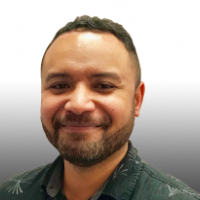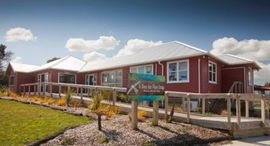South Auckland > GPs / Accident & Urgent Medical Care > National Hauora Coalition >
Te Manu Aute Whare Oranga
General Practice (GP) Service, Kaupapa Māori
Today
9:00 AM to 4:30 PM.
Description
Te Manu Aute Whare Oranga – Open for Referrals
Integrated health service combining western practice and rongoaa Maaori. Provides GP and nursing care, prescriptions, blood tests, ECGs, immunisations, ACC support, cervical screening, and general health checks.
Rongoaa – Open for Referrals
Traditional healing services including mirimiri, rongoaa raakau, and specialised pain support for holistic care grounded in Te Ao Maaori.
Te Whai Arei – Open for Referrals
Support for whaanau navigating suicidal thoughts, distress, or the impacts of suicide within their whaanau. Provides culturally grounded guidance, advocacy, and connections to appropriate services.
Uukaipoo – Open for Referrals
Support for hapu whaanau and whaanau with peepi aged 0-5yrs, providing tailored care for maamaa, paapaa and wider whaanau through haputanga and whaanau waananga, peepi immunisations, and paapaa waananga to strengthen confident, connected early parenting.
Support for whaanau with peepi under 5 years, providing tailored care for the whaanau through maamaa, paapaa and whaanau waananga alongside immunisation and health support to strengthen confident, connected early parenting.
Podiatry – Open for Referrals
Foot and lower-limb care provided by a registered podiatrist for whaanau referred by a nurse or GP. Free for whaanau enrolled at Te Manu Aute Whare Oranga; costs apply for non-enrolled whaanau. Available fortnightly on Wednesdays by appointment through reception only.
Health Coaching (NHC) – Internal Referrals Only
Personalised nutrition and diabetes support for whaanau enrolled at Te Manu Aute Whare Oranga. Helping whaanau set goals, build healthy habits, and manage long-term conditions. Available by appointment through reception only.
Health Improvement Practitioner (NHC) – Internal Referrals Only
Brief holistic support for mental health, long-term conditions, and general wellbeing. Helps whaanau enrolled at Te Manu Aute Whare Oranga improve lifestyle and behaviour to support hauora. Available by appointment through reception only.
Community Outreach – Closed for Referrals
Home-based health checks and support for clinic-enrolled patients with palliative, long-term, or complex health needs. Also provides support at marae and community events.
School Based Health Services – Closed for Referrals
Dedicated within Te Ara Poutama (Manurewa and Pukekohe) and Te Puutahi Maaori o Manurewa, supporting students only.
Te Manu Aute Whare Oranga Enquiries
For more information or to enrol with any of the above services, please contact Te Manu Aute Whare Oranga reception by emailing or calling 09 640 0824. Walk-ins accepted.
Staff
Management
Beverly Puia
Manu Aute Clinical Team
Dr Anae Neru Leavasa - General Practitioner
Bradley Estenzo - Community Nurse Prescriber
Nikki Paash - Practice Nurse
Viniana Bolalailai - Health Care Assistant
Lorna Tuaiti - Clinical Administrator
Anjali - Receptionist and Whaanau Support
Rongoaa Team
Billy Astle - Matawaiora Practitioner
Kaatewairua Evans - Matawaiora Practitioner
Jaclyn Rewharewha - Matawaiora Practitioner
School and Community Health Team
Lesley Drummond - School and Community Health Nurse
Uukaipoo Team
Debi Kapa - Uukaipoo Kaiaarahi (Lead)
Nicole Andrews - Uukaipoo Maternal and Child Health Nurse
Kahiwa Moeau - Uukaipoo Kaiwhiriwhiri (Navigator)
Suicide Prevention and Postvention Team
Bianca Dawson-Puia - Te Whai Aarei Coordinator
Doctors
-

Dr Anae Neru Leavasa
General Practitioner - Vocationally Registered
Ages
Child / Tamariki, Youth / Rangatahi, Adult / Pakeke, Older adult / Kaumātua
How do I access this service?
Make an appointment
Contact us
Please call 09 640 0824 or email whareoranga@manurewamarae.co.nz
Enrolled patients
Enrolling new patients
Fees
Hours
9:00 AM to 4:30 PM.
| Mon – Fri | 9:00 AM – 4:30 PM |
|---|
Public Holidays: Closed Waitangi Day (6 Feb), Good Friday (3 Apr), Easter Sunday (5 Apr), Easter Monday (6 Apr), ANZAC Day (observed) (27 Apr), King's Birthday (1 Jun), Matariki (10 Jul), Labour Day (26 Oct), Auckland Anniversary (1 Feb).
Preferred urgent care clinic out of hours: Bakerfield Medical and Urgent Care.
Languages Spoken
English, Māori
Disability Assistance
Wheelchair access
Parking

Contact Details
81 Finlayson Avenue (Manurewa Marae), Clendon Park, Auckland
South Auckland
9:00 AM to 4:30 PM.
-
Phone
(09) 640 0824
Healthlink EDI
manuaute
Email
Te Manu Aute Whare Oranga
Opening Hours: 9.00am-4.30pm, Monday-Friday
Phone: 09 640 0824
Email: whareoranga@manurewamarae.co.nz
Physical Address: 81 Finlayson Avenue, Clendon Park, Auckland 2103
Postal Address: PO Box 88-161, Clendon Park, Auckland 2103
Manurewa Marae
81 Finlayson Avenue
Clendon 2103
Auckland
Street Address
Manurewa Marae
81 Finlayson Avenue
Clendon 2103
Auckland
Postal Address
PO Box 88161
Clendon Park
Auckland 2103
Would you recommend this service to family & friends?
See ReviewsWas this page helpful?
This page was last updated at 11:36AM on January 27, 2026. This information is reviewed and edited by Te Manu Aute Whare Oranga.
